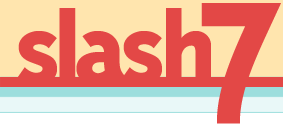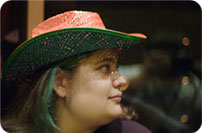Oh yeah, there’s a sugar pill for that.
Everybody knows about The Placebo Effect™.
That’s what happens when you think you’re taking a medicine that will help you, and it does help you—but it turns out that it was a sugar pill, not a medicine at all.
It was discovered by a clever, desperate nurse during World War II. She was running out of morphine to give an injured soldier, so she lied. She told him he was getting drugs, but he was really getting saltwater.
And it worked.
Belief
Now we can believe that through some magical interference, the saltwater was transubstantiated into delicious, delicious drugs. Or we can look at the simpler explanation.
It turns out that simply believing something is a medicine that will help you, causes your body to help itself. The exact mechanisms aren’t known.
But it does appear to be increasing in strength. Which is kinda whacky.
Placebos are getting more effective
There’s an article in Wired today called: “Placebos are getting more effective. Drugmakers are desperate to know why.”
Read it as a commentary on the “health industry” in the US, and you’re going to get angry and depressed.
But if you read it as a case of design epistemology, and it’s a truly fascinating read.
It’s horrendous how ineffective many major drugs are, compared to their placebo. And drug companies, instead of investigating it, look at it “as an embarrassment.” That’s the horrifying part.
And the fact that the placebo effect has been getting stronger over time? Jaw-dropping.
And then comes the most salient fact: the placebo effect isn’t getting stronger in European trials of the same drugs.
Is it just that Europeans are smarter, and Americans are bigger on blind faith?
Hmmmmm.
Everybody loves a marketer!
In the late 90’s, the US government dropped its prohibition against advertising drugs to consumers. Do you remember the explosion in ridiculous drug ads? If so, that was why.
By now, trying to sell “consumers” on brand name drugs, directly, is a $6 billion-a-year business.
This is a throwaway line in the Wired piece. They don’t include the numbers, but I happened to have read it recently in another book.
So. This whole 3-pager from Wired is a well-orchestrated build-up of the mysterious circumstances, the fascinating and horrifying facts. (The story about the nurse came from there. I’d never heard it before—and it’s amazing.)
But at the crescendo, the author gives up. He barely considers that the ads create belief. He mentions that it’s hard now to find American people for trials who are “virgins” (not already taking other drugs), because of the ads increasing consumption.
But he never outright considers that the ads themselves create the belief which causes the placebo effect to be so much stronger.
Even though the potential evidence is staring him in the face.
Actually… Europe doesn’t love a marketer.
Whether cuddly, cute, or super serious, those drug ads aren’t allowed in most European Union countries.
Where, the author points out, at least some drugs are still more effective than sugar pills. The specific case he cites is diazepam in the US versus diazepam in Italy and France.
Same drug, different country—totally different results vis a vis sugar pills.
Interesting, right? Makes you think, doesn’t it? What could be different about these two countries—maybe $6 billion-a-year level of different?
This is hardly incontrovertible proof, but I somehow doubt it’s the widespread use of Vespas that causes diazepam to work better in Italy than on American shores.
Oh, that. “Everybody” “knows” that!
Nobody wants to believe that they’re suckers for advertisements.
So maybe viewers and readers view specific ads with suspicion.
But if you repeat a message long enough, and it appeals to the innate desires of people, it will become reinforced as the culture absorbs it as “common knowledge”. All that “common knowledge” is basically stuff we learned before we had the idea to question it—it was just always, you know, there.
And why would it be harder to believe that drugs = cure than low-fat = healthy?
(Common wisdom pre-low-fat food pyramid was that meats, eggs, and butter were an extremely important part of a healthy diet. And, despite the food pyramid and now-firm belief in low-fat dogma, Americans are surely not getting thinner or healthier.)
In fact, since the placebo response existed long before the mass marketing of prescription drugs (WWII), we know that the belief was already there. Or maybe the belief was “the nurse wouldn’t lie to me.”
Either way, of course we want to believe in a cure.
And there’s no reason to think that repeated exposures to something that reinforced a belief wouldn’t strengthen the belief.
Damn those tightly-coupled, looping systems!
Now we come to the snake-eating-its-own-tail moment.
Drugs are supposed to be the opposite of belief; research trials are supposed to be science.
But one day the drug industry received what it believed to be an enormous, beautifully wrapped present: the American people, delivered legally on a platter of advertising, garnished with giant piles of cash.
Of course it used this gift liberally. Who wouldn’t?
But the very exercising of that gift increased belief in the industry’s products so much, the products aren’t actually required any more to get the relief they are supposed to deliver.
The advertising made Americans believe so hard in drugs, that even fake drugs can work better than the real ones.
Is that incredible, or what?
But it’s not all academic
So we’re not in the drug industry. Well, at least I know I’m not. You probably aren’t either.
This is universally applicable.
Turns out that the placebo effect isn’t just about medication. It applies to processes, too. For example—research found that if you treated factory workers better, gave them shorter hours, and longer breaks, they produced more.
Yay, science vindicates being a decent human being!
Then another study found out that if you treat them worse, give them longer hours and shorten their breaks, they will produce more.
Say what now?
We fool ourselves all the time with processes that we think will make us better leaders, better designers, better programmers, better husbands, wives, girlfriends, boyfriends, people—and they all work, to some extent. It’s the attention and it’s the belief that does it.
Go go gadget humanity.
So this has so far been a pimping-free article. I know you’re getting tired of it. I am too. 2009 is my Year of Hustle and I am hustlin’, but as they say, hustlin’ ain’t easy.
I have, however, submitted a talk to SXSW Interactive where I’ll talk more about these types of things: Sweaty Design: 99% Perspiration for 1% Genius.
Like last year, I will record this talk’s audio and give it away for free, with a transcript.
So if you cotton to the notion, I would greatly appreciate it if you would vote for my talk. Even if you can’t attend SXSW in person. Thanks!








Travis Bickle’s words came to haunt us: "You’re only as healthy as you feel".
This is one of the many reasons that I a) don’t watch that much television and b) DVR the shows I do watch. Sitting through the onslaught of advertisement that occurs "during the break" is more than I can handle. I think you raise very valid points in this article about the "power of hope". Hope that the pill we are ingesting will make us "feel better", "last longer", "grow bigger", "be thinner". The list goes on and on.
I think a great follow up article on this subject would to show the stark contrast of the visuals that we are being fed with the words that are being spoken in these advertisements. I would wager a guess that 90% of the advertisements for medications (prescription or otherwise) depict a healthy, happy [man|woman|child] enjoying whatever mundane activity they happen to be engaged in (say sitting in a bathtub in the middle of a field, wtf? for reals) while someone reads off a list of unsavory words like "nausea", "nose bleed", "diarrhea", "stroke", "death".
We are no longer what we eat. We are what we see, hear and ultimately believe, not to be true, but rather to be "good" for us.
All excellent points, but remember it’s not about drugs alone.
TDD, BDD, Total Quality, Six Sigma, pair programming, XP, Agile, Scrum… User-Centered Design, Personas, etc… are all the same thing.
I totally read this article and have nothing of worth to add. Thanks for the read!
Autosuggestion igret a very important role in our lives. I think if you open the secret naego suggestion, it does not have to take many pills.
The placebo effect is easily explained by the power of positive thinking.
If you think you’re getting better, you just might get better.
If you think you’re dying of a fatal illness, your stressed-out system combines with the typical human’s irrational optimism, seeing patterns and cures where none exists.
That is why the placebo effect works.
This is more effective in America simply because we have the ads and Europe doesn’t. We are led to believe that drugs work, and therefore, drugs DO work – as effective stress-busting placebos.
A few decades more and it will be common knowledge that vitamin deficiencies, combined with high stress and poor nutrition, cause the majority of disease. Let the drug CEOs have their fun while the money’s hot.
As for its applicability to software programming, the ubiquity of acronyms in programming (TDD, PHP, SQL, etc) and psychiatry/psychology (ADD, ASD, OCD, PTSD, etc) comes to mind!
This is a very interesting post and one that was very easy to read. Now I realise that this may be situated towards the American demographic, however I must stress that ‘Europe’ is a big place.
I am from England I have to travel to Spain and Italy for my work. While England, Spain and Italy are all part of Europe I can assure you that are all very different places.
The role of Placebo drugs in England is largely lower because our drugs authority (NICE I beleive) frown on the use of Placebo drugs so as a result the outcome of Placebo studies will be much lower. We do however have a large following of ‘herbal’ treatments, however I doubt that those people would ever be part of a Placebo drug study as they rarely visit ‘real’ doctors.
Some of it may be because the placebo, at least, doesn’t further screw up the body systems with side effects. There is something to be said for cutting out all meds and letting natural body systems do their healing thing.